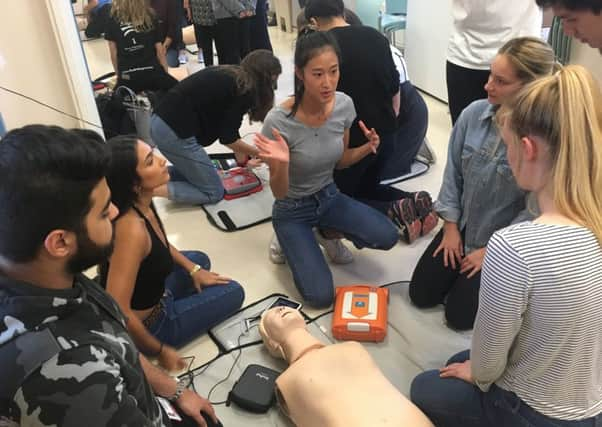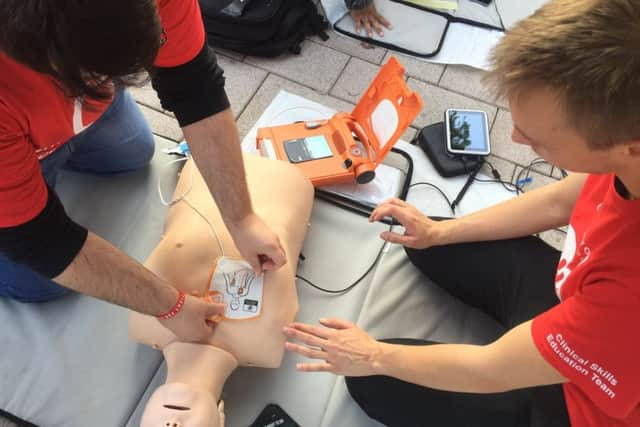Campaign helps to promotes CPR


Medical student volunteers from the University of Leeds have staged a series of drop-in sessions on campus and across the city, as part of the global Restart a Heart Day initiative.
Two recent events on campus, and a third at Victoria Gardens, have provided free training to passers-by in life-saving skills, giving them the confidence to provide vital assistance in the event of a cardiac arrest medical emergency. The drop-in nature of the event allowed for anyone to pop in and learn cardiopulmonary resuscitation skills, as well as familiarising themselves with a public-access defibrillator, all in the space of just eight minutes.
Advertisement
Hide AdAdvertisement
Hide AdA defibrillator is a device that gives a high-energy electric shock to the heart through the chest walls to someone who is in cardiac arrest. The quicker the patient can be given shocks in combination with CPR, the greater the chance of successful resuscitation.


James Nicholson, Restart a Heart student lead at the University of Leeds, said: “This is a colossal achievement. Worldwide, hundreds of thousands of people have received CPR training for global Restart a Heart Day.
“We know that one in five people will witness someone collapse who needs CPR during their lifetime. Just take a moment to think about how many people may receive early CPR and defibrillation because of this teaching.”
A total of 1,086 people took up the offers of free training, with a further session planned with Leeds City Council staff on November 12. The drop-in sessions support the university’s recent initiative in which 17 new defibrillators were installed across campus. The University now has 30 of the registered life-saving machines.